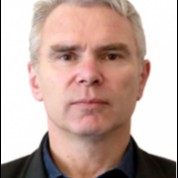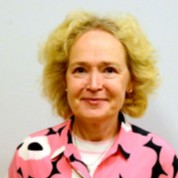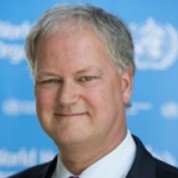Parallel Session 4.2
Multi-sectoral Partnerships for Action on AMR
2 February 2018
15:30 - 17:30 hrs.
| Venue | : | WORLD BALLROOM B |
BACKGROUND :
Antimicrobial Resistance (AMR) respects no borders and has become an increasing threat to all countries - developed and developing alike. Common infections become untreatable, devastating infectious diseases become much more difficult to contain and standard medical procedures become a challenge. Thus, AMR has a major negative impact on growth and global economic stability. Given the breadth of impact from AMR, the only effective means to address AMR sustainably is through multisectoral action and partnership; however, challenges have been identified as to how stakeholders from different sectors can meaningfully come together to produce action and change. Innovative new approaches are needed to truly harness the potential of all people and perspectives, particularly those most vulnerable.
The UN Sustainable Development Goals (SDGs) recognize the importance of AMR (paragraph 26 of the Declaration). The attainment of many of them will depend on the availability of and access to affordable and effective antimicrobial medicines and other technologies such as diagnostic tests. AMR seriously threatens the health and lives of vulnerable populations, such as newborns, children, and women, as well as sustainable food and agriculture production and a healthy environment. AMR is reducing our ability to protect the health of animals and therefore is threatening safe and sustainable food and agriculture.
In a tripartite approach, WHO, the Food and Agriculture Organization (FAO) and the World Organization for Animal Health (OIE) recognize that addressing health risks at the human–animal-plant-ecosystems interfaces requires strong partnerships among entities that may have different perspectives and much work is currently ongoing.
On 21 September 2016, the President of the UN General Assembly convened a one-day high-level meeting at the UN Headquarters on AMR with the participation of Member States, non-governmental organizations, representatives of civil society, the private sector and academic institutions. The primary objective of the meeting was to summon and maintain strong national, regional and international political commitment in addressing AMR and the meeting emphasized the important role and responsibilities of governments, as well as the roles of non-State actors, the private sector and relevant inter-governmental organizations, particularly the WHO, FAO and OIE in establishing, implementing and sustaining a cooperative global, multi-sectoral and cross-sectoral approach.
OBJECTIVES :
- How can the world come together to meaningfully and effectively address AMR in a sustainable way and in particular, engage non-traditional partners?
- Multisectoral partnerships have been identified as essential for addressing AMR – how can the world now move from planning to action at both the international and local levels?
- How does addressing AMR contribute to the attainment of the SDG’s? How to effectively engage all relevant sectors: environment, food, employment, poverty reduction, agriculture, development partners, academia, private sector, etc.?
- How can the voice of all people be heard, particularly those marginalized and most vulnerable?
- What are the issues and opportunities around ensuring linkage between global and community/country-level partnerships? How can partnerships focus on possibilities for meaningful collaboration, action on the ground and specific problems affecting communities rather than focusing only on the broader policy levels?
- What are some good practices and lessons learned from past multisectoral collaborations that could be applied to collaborations on AMR?
Moderator

Matthew Stone
Deputy Director General
World Organisation for Animal Health
France
Panelist

Anna Marie Celina Garfin
National TB Program Manager
Department of Health
Philippines

Jaana Husu-Kallio
Permanent Secretary
Ministry of Agriculture and Forestry
Finland

Marc Sprenger
Director of the AMR Secretariat
World Health Organization
Switzerland

Maria Lettini
Director
FAIRR Initiative
United Kingdom
Stefano Nobile
Advocacy Officer and Focal Point for Health and HIV
Caritas Internationalis
Switzerland
Documents
Flyer :
| FAIRR--Responding-to-Resistance-Antibiotics-Briefing-2017.pdf | : | Download (PDF) |
| FAIRR-Superbugs-and-Super-Risks-The-Investment-Case-for-Action -2016.pdf | : | Download (PDF) |
Biosketch:

